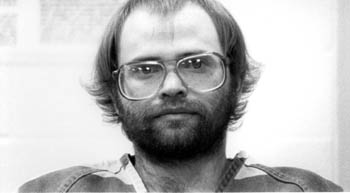![[Metroactive Movies]](/movies/gifs/movies468.gif)
[ Movies Index | Show Times | Silicon Valley | Metroactive Home | Archives ]

Troubled Mind: Stevie Fielding, despite a loving foster family and a Big Brother mentor, could never find a steady path in life. Snakeskin 'Stevie' follows a man going down the drain THE DOCUMENTARY Stevie profiles someone who, as cartoonist Lloyd Dangle once put it, ate all the carrots and was hit with all the sticks. He's an emotionally troubled petty criminal whose big-time crime was molesting an 8-year-old girl. Amazingly, Steve James' documentary makes you like and care about this jail-bound character. Standing by him through his trials and binges is his loyal, mentally challenged fiancee, Tonya Gregory, and his loving but cagey grandmother, who is forced to admit, "Stevie's not all there." The most poignant scenes involve the foster family who treated the young Stevie with the most unconditional love. They couldn't do enough for him, and the question remains open whether anyone could have saved him. On the surface, Stevie Fielding represents the model of the poorest kind of white person in southern Illinois: bad teeth, no education, a living billboard for Jack Daniels, Harley-Davidson, Camel cigarettes and the Confederate flag. He is exactly what Huckleberry Finn would be like if he lived in 1990. Beaten severely as a kid, Stevie never really grew up. His real passions in life are fishing and hunting rattlesnakes; he tried to cultivate the nickname "Snake," but it didn't seem to stick. He escapes with marijuana and beer, neither of which is good for him. And like a true party-hearty, he's baffled by the people who don't live the way he does. Still, Stevie isn't an intolerant film. It's not bad countryside that Stevie comes from. The people aren't fashion models, but they do try to reach out to one another; they're good Christians. James, who made the celebrated documentary Hoop Dreams, lived in southern Illinois when he was going to college. He knows that this is picturesque country and reminds us that the people there love it there, too; they make sacrifices so they can stay. Moreover, James is almost painfully open about his motives. The director (who gives co-credit to his producers, Gordon Quinn and Adam Singer) explains that he met Stevie in 1982 through the Big Brother program when he was in college. He tells us he joined the Big Brothers as a way of getting into the good graces of his wife-to-be. The wife, Judy James--one of those saints, a female counselor of sex offenders--handles Stevie affectionately but firmly. She knows enough to keep her distance. Thus, director James is in that unhappy situation of being caught between a strong-willed wife and a demanding friend. Maybe James couldn't figure out anything else to do with someone so given to self-destruction than to turn a camera on him 10 years later. If recording Stevie's life made it worse--and who can guess that?--James seems ready to acknowledge his guilt in the narration. The gap keeps growing between the classes in the United States so fast that any study of the poor seems to be a kind of looking down the nose at them. Despite that, I think Stevie is a powerful experience that will force many viewers to realize what luck and grace they've enjoyed in their lives. This absolutely engrossing documentary makes most dramas of the lower depths look fake, overcooked and irrelevant.
Stevie (Unrated; 140 min.), a documentary by Steve James, opens Friday at Camera 3 in San Jose.
Send a letter to the editor about this story to letters@metronews.com. [ Silicon Valley | Metroactive Home | Archives ]
|
From the April 10-16, 2003 issue of Metro, Silicon Valley's Weekly Newspaper.
Copyright © Metro Publishing Inc. Metroactive is affiliated with the Boulevards Network.
For more information about the San Jose/Silicon Valley area, visit sanjose.com.